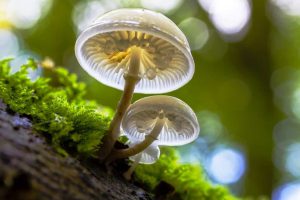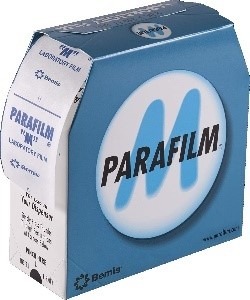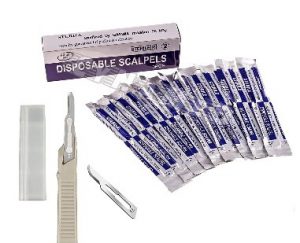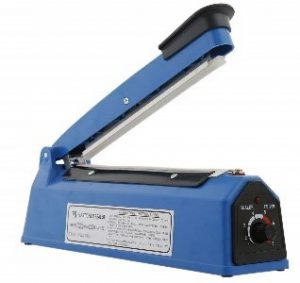
Mycology refers to the deep study of the vast kingdom of fungi, which can be microorganisms such as yeast or mold and macro-organisms like mushrooms. This study and research of fungi have led to several scientific breakthroughs in the food, chemical, and medical industries – one example is the creation of penicillin antibiotics. Working at microscopic levels of detail, the branch of mycology gets down to the cells, cell walls, and nuclei of fungal species. This helps unravel DNA secrets with the help of mycology tools to make advancements in the field of pathology by walking around the life cycle of a fungus. In the culinary world, these microorganisms cause bread to rise. In medicinal contexts, they guide the discovery of cures and solutions to manage and prevent diseases.
When pursued as a hobby, the focus moves towards the art and science of growing your own mushrooms. The techniques of botany meet the joy of home gardening, and mycologists take their organic interests to a whole new level. By using mycology tools and various grow kits, you can follow a mushroom’s life cycle to plan your next gardening stage, as mycology is a very periodic process that strictly moves in its chronological order. Once you have your techniques ammunition to back you up, you can easily switch to auto-pilot mode and enjoy the step 1 – step 2 familiarity of mushroom growing.
How it works
Mycology is a great hobby for people who already enjoy science and research projects. There are many lab elements and the thrill of discovery as you observe your Petri dishes for new colonies. Cultivating mushrooms requires temperature/humidity controls and proper lighting to create the ideal ambience for growth. Mycologists grow a variety of edible mushrooms such as button, oyster, portobello, and shiitake mushrooms.
In its typical life cycle, a mushroom starts off as spores that grow into the thread-like, mycelium network. This mycelial structure forms the mushroom’s body and is responsible for branching out into the environment for the transport of water and nutrients. If things go as planned, then mushroom fruit bodies start to appear, and these are the parts that are quite often consumed for different culinary and medicinal purposes. Spore dispersal eventually takes place on these fruit bodies, and the cycle repeats itself.
Mycology tools or grow kits make all the magic happen, and the general steps of growing your own mushrooms are as follows.
Deciding the type of mushrooms to grow
Before you begin, you need to know which mushroom species you will work on, as this will guide your cultivation process. Oyster mushrooms are known for their beginner-friendly results, and they make a good starting point to learn the ropes.
Obtaining a spore culture and substrate
Mycologists often prefer working with spore cultures and cloning new mushrooms. A pressure cooker comes in handy at this point, and a sterile work environment is absolutely imperative. The good news is, if you are a beginner mycologist, you can always buy ready-made spawn from cultivation suppliers.
Spawn refers to a fungal culture that is already growing on its substrate, so all you need to do is choose your desired mushroom species and work your way from that point. The substrate requires proper treatments, inoculations, sterilization before it can become suitable for making colonies.
Allowing the substrate to be completely colonized
When enough mycelium colonies have ambushed the substrate, and little mushrooms make their first appearances, it is time to transfer the substrate for the fruiting stage. This includes placing the substrate in a controlled environment in which the mushrooms can thrive with optimum conditions. This depends on your choice of mushroom species, as you will need just the right temperature, humidity, ventilation, and brightness for ideal growth.
Harvesting your mushrooms
Finally, you have reached the end of this highly-anticipated journey! At this stage of such an intricate life cycle, you can pick out your favorite mushrooms just before spore dispersal begins. Different mushrooms take different durations to grow fully, ranging from a few weeks to even months.
Types of mycology tools
There are various lab equipment and organic/chemical ingredients that make up your mycology toolset. Some of the tools are mostly single-use, disposable tools, as you need to make sure that you always work with sterile equipment. Other tools are autoclavable – they can go into pressure sterilization machines for reuse.
Before starting your home mycology lab, you have to take care of certain rules for safety as well as fruitful results. This includes ventilating your lab with clean air and maintaining a germ-free workspace. The basic essential mycology tools to launch a successful mushroom project include:
Scalpels
Stainless-steel scalpels are ergonomically designed mycology tool for pin-point accuracy and comfortable grip. They help with cutting cultures and making mushroom clones.
Inoculation loops
These mycology tools are used to streak the mushroom spores across your Petri dish. They help with retrieving cultures from different media.
Inoculation needles
Inoculation needles have dual openings and are effective in injecting substrates with the required cultures. Their main job is to simplify liquid culture distribution and transfer ingredients to the fungal environments. An example would be introducing your chosen mushroom spawn to a log for planting stages.
Impulse sealers
An impulse sealer is an important addition to your mycology tools, as it offers airtight sealing of spawn bags to prevent contaminants from sneaking in. This keeps the inoculated spawns in a sterile bubble until they are used.
Test tubes
Your mushroom cultures require long-term storage in the lab for different reasons, and test tubes make useful containers to store the samples separately, allowing you to label the assortment throughout the project.
Moisture/acidity meters
These measurement mycology tools give you a reading of the moisture and acidity levels of your substrate. They are simple devices that provide ph values to guide your planting process.
Sterilization indicator strips
A sterilization indicator strip is designed to be heat-sensitive and changes its color in response to the sterilized temperatures. If you are working with pressure autoclave machines for industry-like sterilization procedures, then these strips are suitable to check the sterilized climates of such machines.
Pressure cookers
A simple, readily-available substitute for expensive autoclave machines is the pressure cooker. It can accommodate any tools and materials that need to be sterilized. If you are a passionate home cultivator, then investing in a high-end pressure cooker goes a long way for your mushroom projects throughout the year.
Petri dishes
Glass Petri dishes hold your mushroom cultures and facilitate long-term storage. The jelly-like agar is often used to line the Petri dish for better observations of mycelium colonies.
Airflow spawn bags
These are spawn incubation bags that support mushroom cultivation. They contain a microporous filter to allow controlled ventilation by filtering out air contaminants.
Agar extracts
Antibiotic agar inhibits the growth of bacteria and allows mushroom mycelium to thrive instead. It is available as various organic extracts that you can add to your cultures to keep the encroaching bacterial colonies away from your hard work.
Laminar flow hoods
Equipped with HEPA filter technologies, these flow hoods will turn your dedicated home area into a fully-functional mycology lab. They introduce a clean and filtered flow of air into the room, thereby minimizing the onslaught of pollutants and contaminants that will otherwise intrude your cultures.
Parafilm
A parafilm is an elastic and stretchable film that covers Petri dishes, test tubes, and other containers. It is ideal for protecting your mushroom cultures and solutions from airborne germs. Parafilm materials are designed to be breathable and waxy seals that allow the contents to grow as expected without interference from contaminants.
Mycology tools – a shopping guide
Parafilm M PM992 All Purpose Laboratory Film, Semi-Transparent

This all-purpose lab parafilm comes as a roll of semi-transparent tape to seal Petri dishes, test tubes, vials, beakers, flasks, and other containers. They are also used as overwrapping layers and liners to secure bottle caps and stoppers and keep the glass containers from slipping on trays. Parafilm is a great mycology tool that enables gas permeability while locking out airborne contaminants. It cuts down moisture and volume loss from the mushroom cultures and simplifies storage through self-sealing convenience. The roll is placed inside a cardboard dispenser for quick usability; its flexible and elastic material clings to uneven surfaces as well. With up to 48 hours of resistance, your cultures and agar works remain untampered and tightly-sealed, allowing you to focus on mostly pure results.
ChezMax 50PCS Mushroom Growing Bags Mushroom Spawn Bags Extra Thick Bags Micron Filter Breathable Autoclavable Bags

These micron-filter spawn bags are made of breathable and autoclavable materials for your mycology projects. They measure 5.9 x 13.8 inches in size and are available as a 50-piece set. Using these mushroom growing bags, you can carry out various spawn and cloning stages – for example, with oyster mushrooms. There is ample room for the spawns to grow and reach the fruiting level. A micron-filter patch enables ventilation while keeping the contaminants away from your project. You can easily observe the different stages and any traces of contamination through the high-quality clear bags. They are designed to be translucent and strong for reliable uses in your home lab, and you can experiment with various specimens of mushrooms in individual bags to see what works best for you.
Disposable Sterile Scalpels (10 Pack) – Size #10 High Carbon Steel Blades with Plastic Handle for Dermaplaning, Crafts, Podiatry, Wood Model Making, Mycology, Plant Cutting, Dissecting & More (#15)

These sterile scalpels are multipurpose mycology tools that are ideal for mycology pursuits. They are size-15 tools with tempered carbon-steel blades that attach to a plastic handle. Individually wrapped in sterile packaging, these heavy-duty scalpels come with a protective cover to seal the blade. This is helpful if your work does not demand immediate disposal and can continue unharmed by reusable scalpels – sterilized as needed. The sharp scalpels are ergonomically shaped to add comfort through the plastic handle, and you can obtain precise cuts on mushroom cultures. Mycology is a handcrafted hobby, and these scalpels ease your precision with purpose-built blades and just the right sizes for a home lab.
5 Glass Petri Dish 60mm, Tissue Culture Plate, Autoclavable Borosilicate Glass, Pack of 5

This is a set of 5 glass Petri dishes to organize your mushroom cultures separately, wrapped by parafilm tapes and stowed away for the right time. Since they are autoclavable, you can reuse the Petri dishes after sterilizing them in pressure machines/cookers. This saves you the hassle of buying new stocks, especially if you are conducting a small-scale project. The dishes have a diameter of around 2.5 inches and come with their cover lids that fit loosely for better air circulation, unless you want an airtight seal, in which case you would resort to parafilm materials.
COLIBROX 12″ 300mm Impulse Manual Hand Sealer Heat Sealing Machine Poly Tubing Plastic Bag

This impulse sealer is a manual heat-sealing machine to quickly seal away your spawn bags into airtight, sterile environments. The machine has a short heating time and is equipped with a 12-inch-long sealing element. Through instant mechanical sealing, you can preserve the contents of your mycology bags and ensure minimal loss of volume, moisture, etc. The lightweight impulse sealer is very portable and makes a resourceful countertop addition to your home lab. It can seal various PE/PP bags and operates at an impulse power of 450 watts. Since the heating time lasts just a couple of seconds, the machine is a power-saving alternative to fully-electric sealing machines that might also be too expensive for hobbyist interests
iPower Soil pH Meter, 3-in-1 Tester Kit for Moisture, Light & pH for Home and Garden, Lawn, Farm, Plants, Herbs Tools, Indoor/Outdoor Plant Care

This is a soil ph meter that works as a 3-in-1 soil tester for sunlight, moisture levels, and ph values. It is one of the essential home gardening and mycology tools that you can use in watered soil or substrates to determine acidity or alkalinity levels. By keeping a close check on the immediate surroundings, you can grow your mushroom plants much better as you will be more aware of watering times and light sufficiency. You just need to insert the meter probes into the soil and take the readings in 10 minutes. The handheld ph meter is only compatible with watered soil and should not be used for liquid-only environments. Ranging from horticulture projects to small home gardens, the meter is a versatile device for all indoor and outdoor soil contexts.
Argos L0010-1 Yellow High Impact Polystyrene Individually Wrapped Sterile Disposable Inoculating Loops, 10 microliter Capacity (Case of 250)

These inoculating loops are available as a pack of 250 individually-wrapped mycology tools. They are made of polystyrene material and are sterile, disposable mycology loops to work on your Petri dishes. They are safe to use under hoods and help you achieve smooth, uniform streaks on your cultures. The material does not require flaming for sterilization – unlike metal counterparts – and you get to work freely without worrying about potential cross-contamination from pathogens. These inoculation loops are color-coded to differentiate between all the available sizes.
The Ultimate Coir Growth Substrate -Sterilized Mushroom Substrate- Made in America – Fast Colonization, Robust Mycelium Growth (2, Two Bags)

Ideal for quick colonization, this mushroom substrate is a must-have product to streamline your mycology projects. It has a micron-filter patch to preserve its sterile climate and comes with a self-healing injection port to simplify inoculation times. The substrate enhances mushroom cultivation in your home lab, which makes it a great choice to boost your confidence as a beginner. Using a nutrient-rich combination of coconut coir, vermiculite, and additional supplements, the substrate promotes higher yields full of robust mycelium. The pre-sterilized compound is transported in grow bags sealed with a commercial-grade impulse seal. You can purchase these substrates as 1-pound, 2-pound, or 5-pound grow bags. All of them deliver the time-tested promise of fast colonization to accelerate your mycology goal.
A down-to-earth hobby
Mycology is a very multifaceted hobby that brings you to the most organic detail of growing mushrooms. From observing minute changes under the microscope to celebrating tangible results with massive harvests, the art of growing and maintaining your own mushroom supply is truly rewarding. DIY cultivation is the perfect way to connect with nature, and mushrooms check off all the boxes in terms of life cycles, sustainability, decomposition, and environmental secrets.
Once you get your garden up and about, it is fun to pick your favorite mushrooms from a magnificent yield and use them for authentic culinary creations. Mushrooms have a distinct umami flavor that makes them an interesting alternative to meat. They are added to uplift the flavor profiles of various cuisines for vegetarian and vegan-friendly meals. Mycologists who follow organic diets and enjoy gardening will know that there is no turning back from this game-changing pursuit that brings shiitake and cremini mushrooms right into their home gardens.
With self-sufficiency and the addictive peace of the entire process, home cultivators find a happy place in their makeshift labs. There are endless ways to make home-grown mushrooms the healthy highlight of any dish. Mushroom soups, garlic mushrooms, stroganoffs, creamy parmesan, and mushroom spaghetti are just a few to name – not to mention mushroom as our all-time favorite pizza topping!
~~~~~~~~~~~~~~~~~~~~~~~~~~~~~~~~~~~~~~~~~~~~~~~~~~~~~~~~
“I believe that mycelium is the neurological network of nature.”
“Mushrooms are miniature pharmaceutical factories.”
– Paul Stamets, a pioneering mycologist
~~~~~~~~~~~~~~~~~~~~~~~~~~~~~~~~~~~~~~~~~~~~~~~~~~~~~~~~
